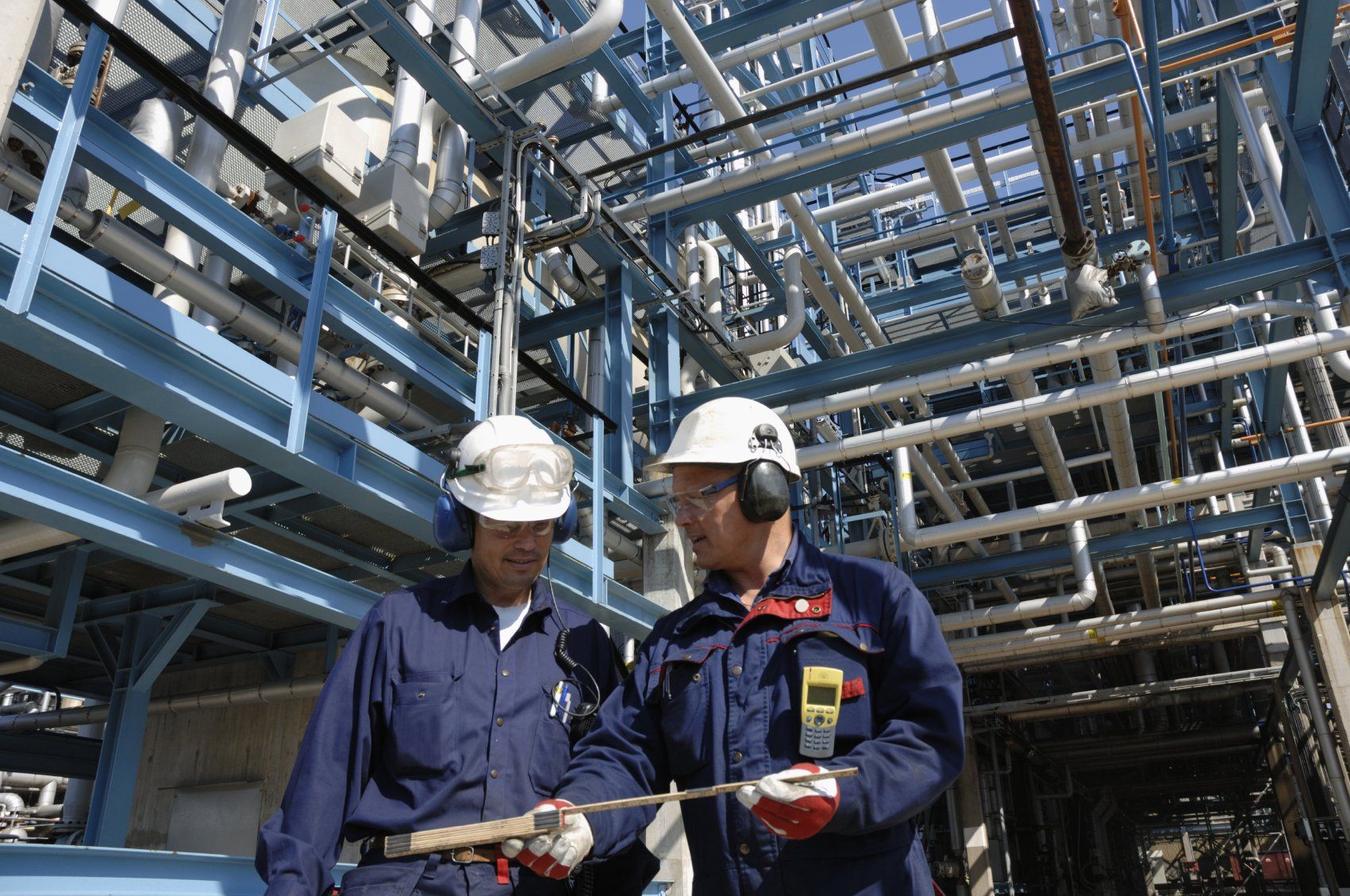Asbestos Survey 101: Understanding the Different Types of Surveys
Asbestos Surveys Are A Crucial Tool In managing Your Asbestos, But Why?

Are you a property owner or manager? Have you heard of asbestos and the dangers it poses to human health? Asbestos is a naturally occurring mineral that was widely used in building materials until its harmful effects were discovered. If you suspect that your property contains asbestos, it is important to conduct an asbestos survey to determine the extent of the problem. However, before you schedule a survey, it is important to understand the different types of surveys available.
In this article, we will provide you with a comprehensive guide to asbestos surveys, including the different types of surveys and their purposes.
Whether you are a homeowner or a commercial property owner, understanding these surveys can help you ensure the safety of your property and those who live or work in it. So, let's dive in and explore everything you need to know about asbestos surveys.
What is an Asbestos Survey?
An asbestos survey is a detailed inspection of a building or property to determine whether it contains asbestos-containing materials (ACMs) and to assess the condition of those materials. The survey helps to identify the type, location, and extent of any ACMs present in the property. The survey also assesses the risk of exposure to asbestos fibres and recommends the necessary actions to manage or remove the ACMs.
An asbestos survey is a legal requirement for all non-domestic properties built before 2000. However, it is also recommended for domestic properties built before the year 2000. An asbestos survey should always be carried out by an experienced, competent and qualified asbestos surveyor who has the necessary training, experience, and equipment to conduct the survey safely and effectively.
Asbestos surveys can be categorised into three types: Management Surveys, Refurbishment Surveys, and Demolition Surveys.
Let's take a closer look at each of these surveys.
Why are Asbestos Surveys Important?
Asbestos is a hazardous material that can cause serious health problems if inhaled. Asbestos fibres are microscopic and can easily become airborne when ACMs are disturbed or damaged. If inhaled, these fibres can cause lung cancer, mesothelioma, and asbestosis amongst other respiratory complications. Asbestos-related diseases can take years or even decades to develop, and there is no cure for them.
Asbestos surveys are important because they help to identify the presence and condition of ACMs in a property. This information is crucial in determining the risk of exposure to asbestos fibres and in developing an effective management plan to minimise the risk. An asbestos survey can also help to identify any ACMs that need to be removed or encapsulated to prevent exposure.
If you are a property owner or manager, conducting an asbestos survey is not only a legal requirement but also a responsible and ethical decision. By conducting a survey, you can ensure the safety of your occupants and protect yourself from potential legal liabilities.
Types of Asbestos Surveys - Management, Refurbishment and Demolition Surveys
Asbestos surveys can be categorised into three types depending on their purpose and scope.
These surveys are:
1. Management Asbestos Survey
An management asbestos survey is a standard survey that is designed to identify the presence and condition of ACMs in a building or property. The survey is usually carried out during the normal occupation of the building, and it aims to assess the risk of exposure to asbestos fibres. The survey will involve the sampling and analysis of any suspect materials, it is not designed to identify the location and condition of all ACMs in the property.
A management asbestos survey is typically required for all non-domestic properties built before 2000. The survey must be conducted by a qualified asbestos surveyor who has the necessary training and experience to carry out the survey safely and effectively.
2. Refurbishment Asbestos Surveys
A refurbishment asbestos survey is a more intrusive survey that is designed to identify all ACMs in a building or property or part thereof, that may be disturbed during refurbishment or renovation work. The survey is usually carried out when the building is vacant or unoccupied, and it involves sampling and analysis of all suspect materials.
A refurbishment asbestos survey is required for all non-domestic properties built before 2000 that are due to undergo refurbishment or renovation work.
The survey must be conducted by a qualified asbestos surveyor who has the necessary training and experience to carry out the survey safely and effectively.
3. Demolition Asbestos Surveys
A demolition asbestos survey is the most comprehensive survey that is designed to identify all ACMs in a building or property that may be disturbed during demolition work. The survey should only be carried out when the building is vacant or unoccupied, and it involves sampling and analysis of all suspect materials.
Due to some ACM’s being installed into properties within structural voids, it is not always possible to locate and identify all materials therefore ensuring any demolition workers are adequately trained in Asbestos Awareness can help in preventing damage to ACM’s and ensuring workers remain safe and are not exposed during demolition works.
A demolition asbestos survey is required for all non-domestic properties built before 2000 that are due to undergo demolition work. As with management asbestos surveys and refurbishment asbestos surveys, the survey must be conducted by a qualified asbestos surveyor who has the necessary training and experience to carry out the survey safely and effectively.
Asbestos Management Surveys - What to Expect
A management asbestos survey is a non-intrusive survey that is designed to identify the presence and condition of ACMs in a building or property. The survey is usually carried out during the normal occupation of the building, and it aims to assess the risk of exposure to asbestos fibres.
During a management asbestos survey, the surveyor will visually inspect the property and take samples of any suspect materials. The surveyor will also assess the condition of any known or suspected ACMs and record their location. The surveyor will use a variety of tools and techniques to inspect the property, including a torch, a ladder, and small hand tools.
After the survey, the surveyor will prepare a report that details the findings of the survey. The report will identify any ACMs that were found and assess their condition. The report will also include a risk assessment that outlines the risk of exposure to asbestos fibres and recommends the necessary actions to manage or remove the ACMs.
Refurbishment Asbestos Surveys - What to Expect
A refurbishment asbestos survey is a more intrusive survey that is designed to identify all ACMs in a building or property that may be disturbed during refurbishment or renovation work. The survey is usually carried out when the building is vacant or unoccupied, and it involves sampling and analysis of all suspect materials.
During a refurbishment asbestos survey, the surveyor will visually inspect the property and take samples of all suspect materials. The surveyor will also assess the condition of any known or suspected ACMs and record their location. The surveyor will use a variety of tools and techniques to inspect the property, including a torch, a ladder, and larger hand tools such as hammers, chisels and crow bars.
After the survey, the surveyor will prepare a report that details the findings of the survey. The report will identify all ACMs that were found and assess their condition. The report will also include a material risk assessment that outlines the risk of exposure to asbestos fibres during refurbishment or renovation work and recommends the necessary actions to manage or remove the ACMs.
Demolition Asbestos Surveys - What to Expect
A demolition asbestos survey is the most comprehensive survey that is designed to identify all ACMs in a building or property that may be disturbed during demolition work. The survey is usually carried out when the building is vacant or unoccupied, and it involves sampling and analysis of all suspect materials.
During a demolition asbestos survey, the surveyor will visually inspect the property and take samples of all suspect materials. The surveyor will also assess the condition of any known or suspected ACMs and record their location. The surveyor will use a variety of tools and techniques to inspect the property, including a torch, a ladder, hand tools and in some cases powered tools to access voids that are otherwise inaccessible with basic tools.
After the survey, the surveyor will prepare a report that details the findings of the survey. The report will identify all ACMs that were found and assess their condition. The report will also include a material risk assessment that outlines the risk of exposure to asbestos fibres during demolition work and recommends the necessary actions to remove the ACMs.
Choosing the Right Asbestos Survey for Your Property
Choosing the right asbestos survey for your property depends on several factors, including the age and condition of the property, the scope of work planned, and the type of property (domestic or non-domestic). If you are unsure which survey is appropriate for your property, you should consult a qualified asbestos surveyor who can advise you on the best course of action.
In general, a management asbestos survey is appropriate for all non-domestic properties built before 2000.
A refurbishment asbestos survey is required for all such properties that are due to undergo refurbishment or renovation work.
A demolition asbestos survey is required for all such properties that are due to undergo demolition work.
Asbestos Survey Cost - What You Need to Know
The cost of an asbestos survey can vary depending on several factors, including the type and scope of the survey, the size and complexity of the property, and the location of the property. In general, a management asbestos survey is less expensive than a refurbishment or demolition survey.
The cost of an asbestos survey may also depend on the qualifications and experience of the surveyor. It is important to choose a qualified and experienced asbestos surveyor who can provide you with an accurate and reliable survey report.
For more guidance on asbestos survey costs head over to our pricing page which will help you work out the likely cost of your survey.
Benefits of Hiring a Professional Asbestos Surveyor
Hiring a professional asbestos surveyor has several benefits, including:
- Compliance with legal requirements
- Accurate identification and assessment of ACMs
- Minimization of the risk of exposure to asbestos fibres
- Provision of an effective management plan
- Protection from potential legal liabilities
A professional asbestos surveyor has the necessary training, experience, and equipment to conduct an asbestos survey safely and effectively.
By hiring a
professional surveyor, you can ensure the safety of your occupants and protect
yourself from potential legal liabilities.
Conclusion
An asbestos survey is a crucial step in ensuring the safety of your property and those who live or work in it. By understanding the different types of surveys available and their purposes, you can choose the right survey for your property and minimise the risk of exposure to asbestos fibres.
Remember to only ever employ the services of a qualified and experienced asbestos surveyor to conduct your survey and provide you with an accurate and reliable report.
Failure to ensure your appointed surveyors competence could land you in trouble.









